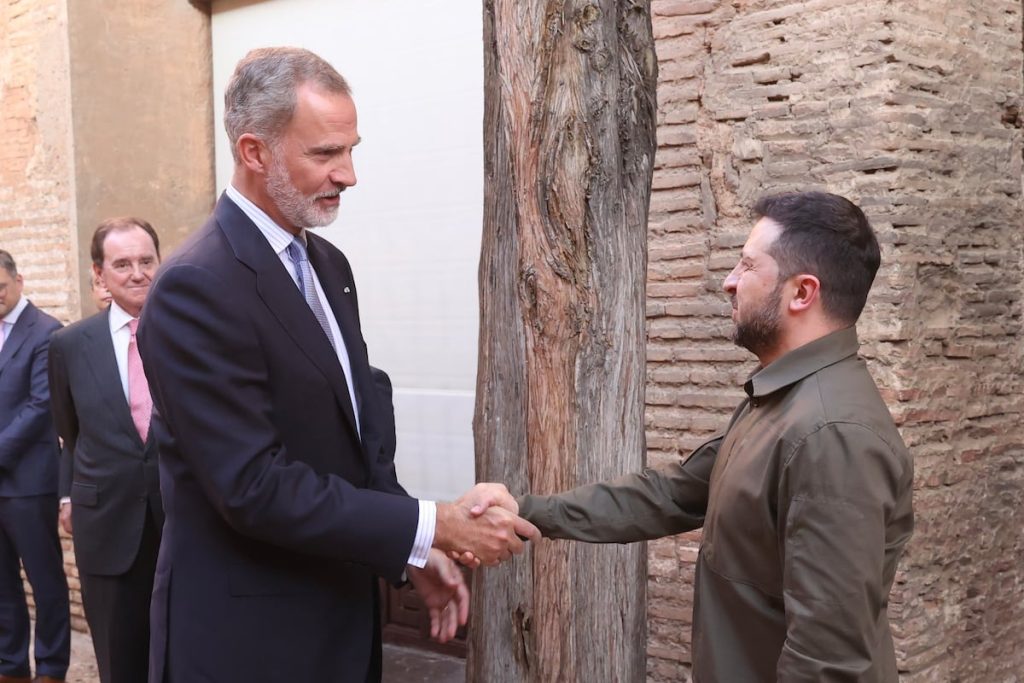Ukrainian President Volodymyr Zelensky has canceled his planned trip to Spain and Portugal at the end of this week due to the grave internal situation in Ukraine. The cancellation comes as Russia launches a renewed offensive in the north, threatening the city of Kharkiv, the second largest city in the country. Zelensky was scheduled to meet with King Felipe VI on Friday in what would have been his first official visit to Spain. The cancellation was confirmed by sources from the Spanish government and the Royal Palace.
The cancellation of Zelensky’s visit disrupted the planned agenda, which included an audience with King Felipe VI at the Royal Palace followed by a lunch hosted by the Spanish monarch. During his visit, Zelensky was also expected to sign a security agreement with Spanish President Pedro Sánchez, similar to those already signed with other European countries. The agreement aims to provide long-term military support to Ukraine until it can become a full member of NATO and the EU. The negotiations for this agreement were initiated in early March and have already concluded.
The bilateral security agreement between Spain and Ukraine is intended to provide stability and predictability to the military support already provided by Spain to Ukraine. This support includes the provision of weaponry, training of combatants, and medical care for wounded soldiers. Spain’s commitment under the agreement includes long-term military assistance, collaboration in defense industry development, and exchange of intelligence and cybersecurity information. The agreement is expected to be approved by the Council of Ministers without requiring ratification by the Congress.
Despite not being a member of the G-7, Spain responded to their call for support to Ukraine and initiated negotiations for a bilateral agreement. This agreement does not include a mutual defense commitment against external aggression but involves consultations in the event of a Russian attack. Spain also commits to maintaining economic sanctions against Russia and cooperating with the International Criminal Court in prosecuting war crimes. The agreement is likely to determine the amount of military aid Spain will provide to Ukraine in the coming years.
The Spanish government’s decision to bypass parliamentary approval for the military agreement with Ukraine has drawn criticism from opposition party Podemos. They accuse the government of usurping the Congress’s role in deciding on significant matters that affect the country economically and in terms of security. Despite the criticism, Spain’s provision of Patriot missiles to enhance Ukraine’s air defense capabilities has been welcomed by Ukrainian authorities, despite the modest quantity supplied. The rapid delivery of these missiles contrasts with delays in military aid from other countries, allowing Russia to gain ground on the battlefield.















